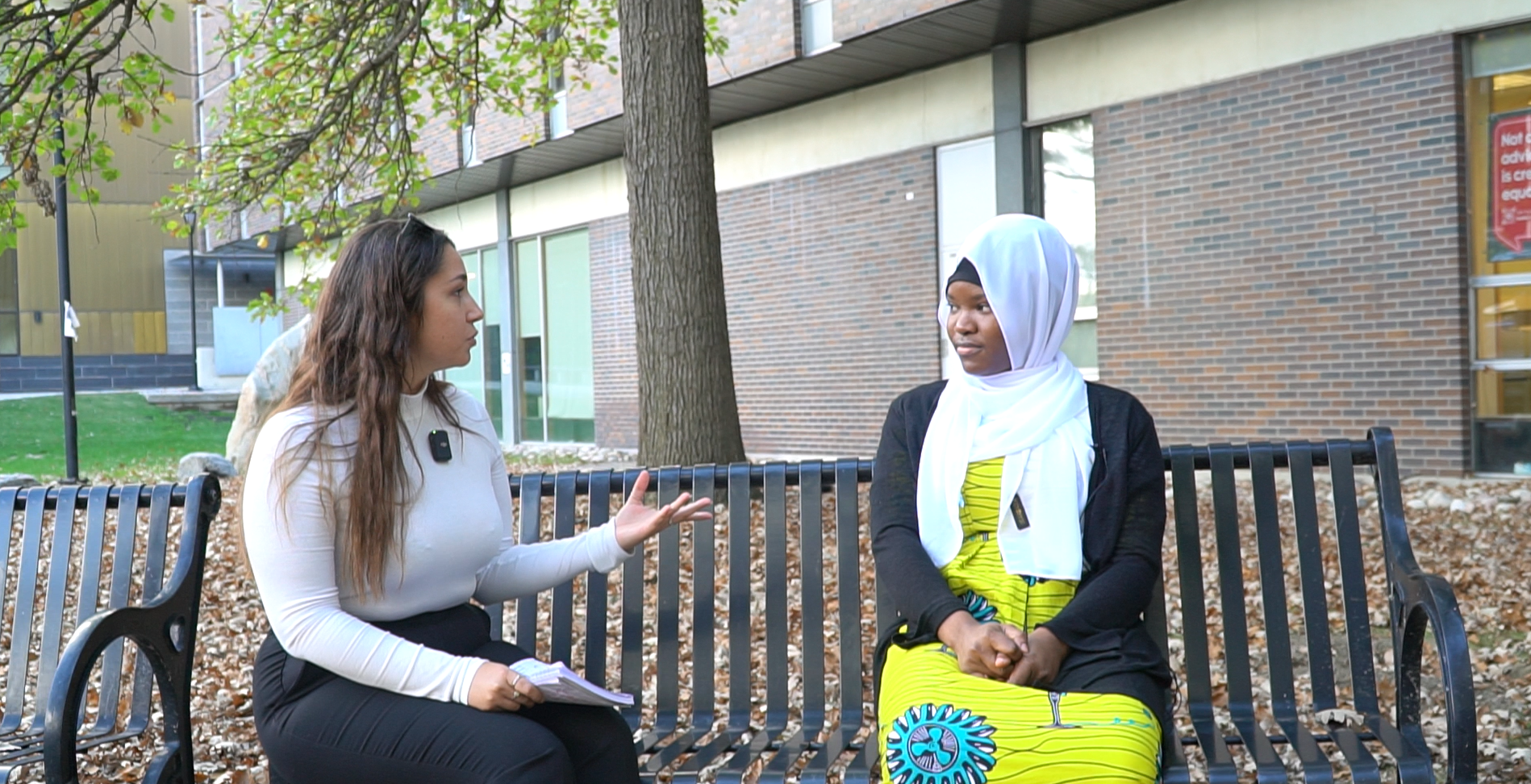The third event of the 2023-2024 MDS Speaker Series took place on Monday, November 20th featuring Goundo Diarra, a master’s candidate in Migration and Diaspora Studies at Carleton University. Goundo is currently a researcher with the Local Engagement Refugee Research Network (LERRN) and a supporter of refugee education in the Middle East and East Africa. The event, held at Richcraft Hall, focused on Diarra’s dissertation titled “Access, Enrollment and Retention: The Case of Female Refugee Education in Kakuma Refugee Camp and Kalobeyei Settlement.”

Description: Georgiana Ghitau and Goundo Diarra discuss her research on a bench outside of Paterson Hall at Carleton University. Photo credit: Jarukson Jeevakumar and Beatrice Villadelgado
Diarra’s research explores the experiences of female refugees, a group often marginalized in discussions on forced migration, and delved into potential differences between Kakuma and Kalobeyei. Her argument, grounded in feminist economic theory and intersectionality, posited that economic factors would wield greater influence on education outcomes than cultural norms.
Contrary to her hypothesis, Diarra’s findings revealed no inherent differences in access and enrollment based on parental education and employment. Instead, socio-cultural factors emerged as critical, with early marriage, pregnancy, poverty, and societal norms disproportionately affecting female students. The comparison between Kalobeyei and Kakuma illuminated disparities in infrastructure, opportunities, and the impact of poverty in the Turkana region.
Diarra’s emphasis on bottom-up, localized, and inclusive approaches highlighted the need for gender-informed solutions. She challenged top-down models, emphasizing the importance of community engagement and adaptability. The presentation offered a real-world perspective on challenges faced by displaced populations.
During the event Diarra discussed the disconnect between donor expectations and on-the-ground realities prompted reflections on international policymaking and resource allocation in the broader context of migration. The call for inclusivity, echoing the “Nothing about Us Without Us” principle, highlighted the significance of involving affected communities in decision-making. Diarra’s insights on economic factors in refugee education urged researchers to focus on sustainable, empowering solutions beyond survival needs.
Her discussion on alternative perspectives, counter-school discourse, and cultural viewpoints challenged preconceptions about formal education. It emphasized the multifaceted nature of education within diaspora communities, extending beyond traditional institutions. Lastly, the focus on community perspectives and resistance painted a vivid picture of refugees as active contributors shaping their destinies, challenging passive stereotypes.
Overall, Diarra’s presentation served as a catalyst for rethinking migration and diaspora issues, providing comprehensive insights into the complexities of female refugee education. It urged scholars to adopt intersectional, context-specific, and holistic community-engaged approaches, leaving the audience with a deeper understanding of the intricate dynamics surrounding education in refugee camps.
This report was prepared by Georgiana Ghitau, LERRN Knowledge Mobilization and Translation Officer.
Watch the video below!